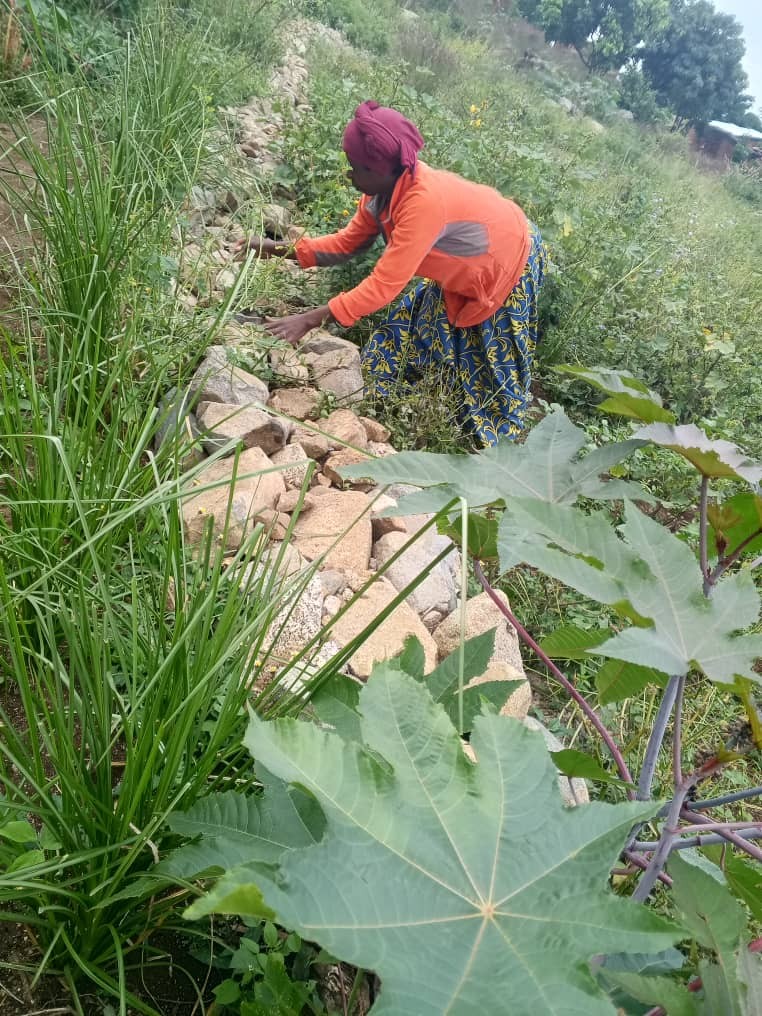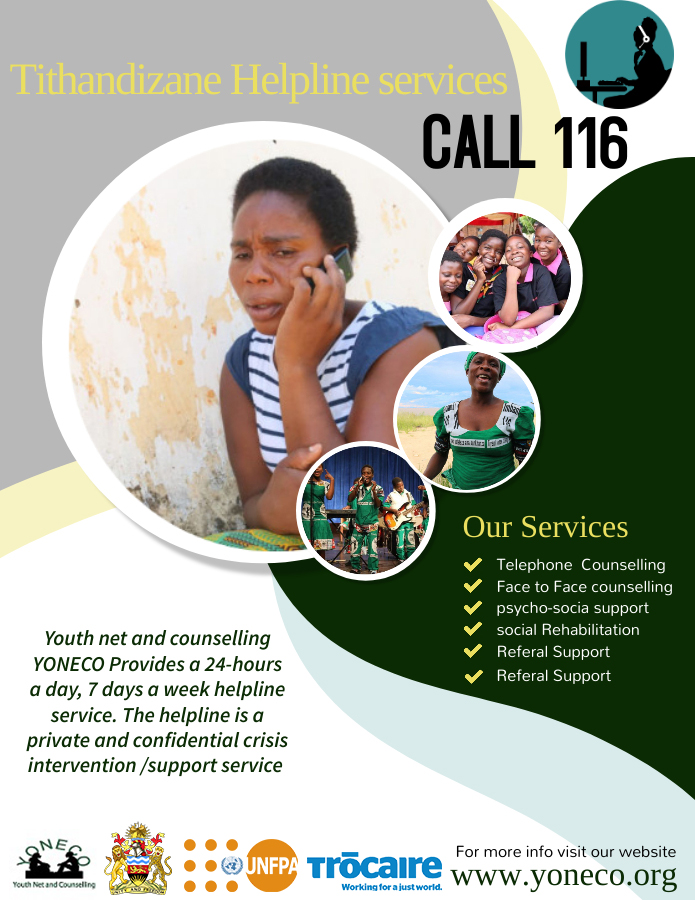As part of the Making Communities Resilient to Climate Change-Induced Health Challenges Project being implemented in Traditional Authority (TA) Mposa, Machinga, a trained Community-Based Organization (CBO) member is driving change through the promotion of climate-smart agricultural practices aimed at reducing soil erosion and ensuring food security.
The CBO member organizes frequent community sensitization sessions through which he educates participants on practical and sustainable land-use techniques like construction of check dams, contour farming, responsible land management, and the planting of vetiver grass on sloped terrain. The CBO member assured communities that the methods are key in addressing the impacts of climate change, including intense rainfall that increases soil erosion thereby affecting crop yield.
One family from the village that got inspired took an initiative to build a check dam on their sloping farmland to control water levels and flow. The results were remarkable because the structure helped retain topsoil and moisture reducing erosion and boosting soil fertility. This year the family recorded a significantly higher harvest compared to previous years.
The success story is now motivating other community members to adopt similar soil conservation practices in the next farming season.
The case of Mtambaika Village shows how community-led climate change interventions can lead to improved agricultural productivity and resilience for farmers.
The Making Communities Resilient to Climate Change-Induced Health Challenges Project is being implemented by YONECO with the support of Foundation S.


